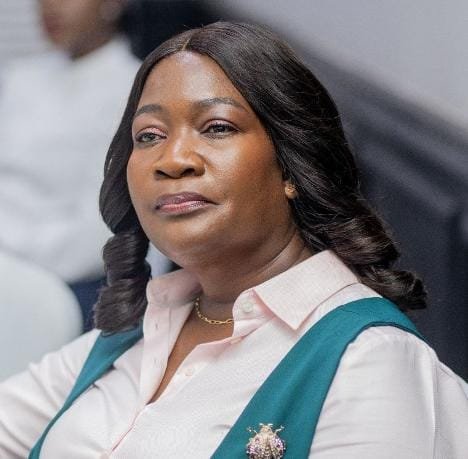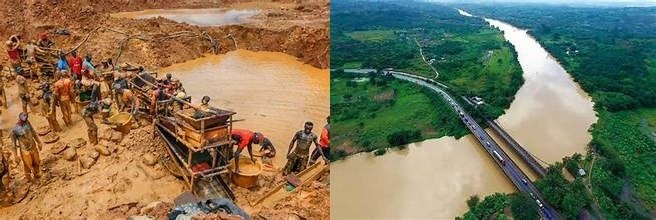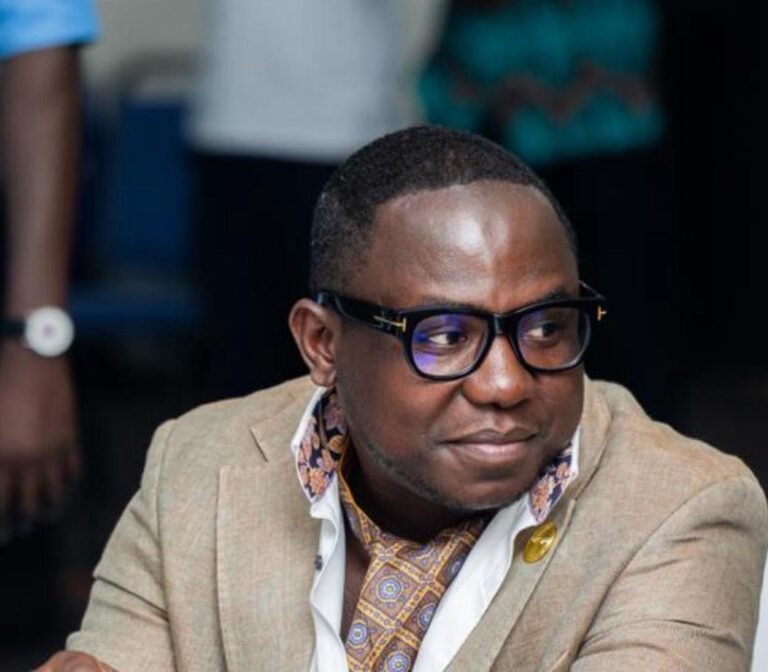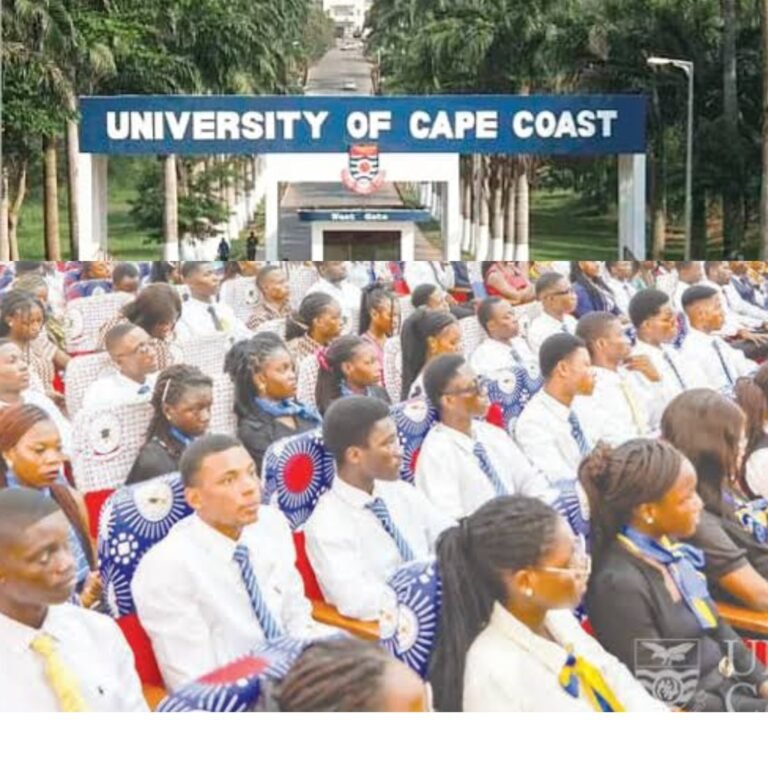
President Akufo-Addo and former President Rawlings
Every worthwhile accomplishment, big or little, has its stages of drudgery and triumph; a beginning, a struggle and a victory – Mahatma Ghandi
The battle on the part of the two leading political parties for the minds, hearts and souls of Ghanaians can be summed up in what we consider as our collective destiny, with the future generations as the focus of any programme or intervention in store for the electorate.
With the days when it was a political ritual to spike Jerry Rawlings to secure votes fading, and new challenges emerging in a globalized world, the imperative is to look beyond colours and ethnicity, religion and tradition in deciding which political party aspires to our real needs and hopes, aspirations and benefits.
For those of us who have lived through it all – from Nkrumah through the military juntas; Busia and Limann to Rawlings, Kufuor and Mills/Mahama, till date – the reality is that merely being sentimental over issues will result in Ghanaians being shortchanged, unless we hold our politicians accountable and ensure that we secure for ourselves political leadership that thinks ‘Ghana First’.
Basic
I bet that the worst any politician today can imagine is taking the electorate for donkeys, instead of brothers and sisters who have been appointed by law to assist to find their way in the dark. That picture has not come to me more forcefully than reports, for instance, that farmers are compelled to hang to death because they cannot find markets for their vegetables and so cannot make good their commitments to repay loans offered them by state banks.
This is because they used family livestock as collateral to access the facilities or, that traders buy vegetables or cereals at farm gates and ritually abscond until drivers track them to Kumasi Race Course, Agbogbloshie or CMB, Ashaiman Mandela and Tema New Town before repayment is made.
The other side of the coin is the picture where farmers sign a contract with a food processor, like Heinz or Northern Star, to deliver XYZ tons of fruits or vegetables for processing only for them to divert the produce to market queens, after taking monies from the processing company.
So, if we have governments unable to deal with such simple grassroots issues, what we may be left with is merely find references to ethnicity vibes when next-door in Benin or Cote d’Ivoire, along the forest and Savannah belts or cocoa and vegetable belt, actors in the sector are being groomed to reduce drudgery along the agricultural chains.
Additionally, if after reading about post-harvest loss in Economics class 45 years ago in secondary school, I still find the phenomenon recurring at Makola, CMB or Agbogbloshie, under the gaze of the politician, who releases budgets annually to local government authorities just to clean up mess that arises from offloading fruits and vegetables, I must be appalled. And, I must be appalled because those funds could have been channeled into supporting initiatives that process manageable small quantities of the commodities to avert the degradation on markets and the threat of being offered unwholesome foods.
Basic human resource development
Again, if we are being overwhelmed with the numbers that seek education opportunities at tertiary level or those that are churned from our tertiary institutions, and cannot have space for self-improvement and jobs, then we need a different breed of political leaders who move away from useless talk to serious businesses of state in engineering solutions.
Any modest attempt to manage these few economic constituencies alone will have ripple effects that impact lives and livelihoods as well as economic growth and development, considering that these actors are in the millions – with the potential to positively impact further millions.
Tolerating governments that simply “come and go”, without addressing structurally some of these basic issues at grassroots level in a nation that is made up largely of informal or agrarian actors, is a deliberate political decision to toy with the destiny of a nation.
Basic sanitation and infrastructure
I grew up in an indigenous Ga community – typical large compound house, with enough space for constructing basic sanitation facilities, except that we had gotten used to the colonial structures that served the community. Strangely, our grandparents never dreamt of affording a water closet facility. We could have, yet government, wanting to look too good, did not encourage it because it was western and ostentatious – even criminal, as gathered in the late 70s and early 80s from the politicians of those times.
Today, though under the National Democratic Congress bye-laws were put in place by Kwamena Ahwoi’s local government boys to have people prosecuted for non-compliance with regard to provision of such facilities, we still struggle with quality sanitation, particularly in sanctioning offending landlords.
I have always been saddened by an incident in which the late Nii Anyetei Kwakwranya, La Mantse and Minister during the Acheampong era, had to be dragged from a late morning nap to host the Netherland Ambassador who was breaking grounds for the construction of a modern facility, which the community could have afforded anyway, had we been more aware. And, it was worse when I encountered the spectre of open defecation at a Tamale Cluster of Schools – when the lead politician and MP in that constituency could, in my opinion, have afforded to support a project for the poor kids.
When we ignore these basic responsibilities and spin ethnic garbage on decent folk filling in the gap where we left off, we tell the world that we really have nothing to offer society.
Putting idle hands to good use
I can also cite the current incidence of violence in which Nii Lante was a victim. I have difficulty believing that that cycle must continue. That is because we cannot sustain it. Aside of that, there is something I must share with my indigenous brother MP aspirants in Ga Central.
In La, Teshie and Nungua, we don’t take politics that level. We don’t eat each up over politics. We cooperate, and that’s why the results in the three seem most of the time to sync since 2000 – with Odododiodioo going stridently NDC to the point of attrition.
Teshies are part of La. Nungua led the Gas in arriving in the south. In La, constituency executives span both divides. As a result, any attempt to generate violence leaks, making it difficult for electoral violence to fester. It is the same in Teshie, where police will confirm that violence is a cheap commodity that can spill onto the political turf easily.
Significantly, both my brother Nii Lante Bannerman and Nii Lante Vanderpuye hail from Jake Obetsebi Lamptey’s Lante Dzan We (Clan) and should have had the situation managed, if there is respect for that tradition. That aside, these constituencies abound in soccer and boxing talent, providing stars for Hearts of Oak, Great Olympics and, occasionally, Kotoko. Nii Lante himself played colts soccer, culminating in his love and career in sport commentary.
That is why both Bannerman and Vanderpuye ought to be seen working together to generate skills training initiatives in creating jobs in the two popular sports to reduce the inexcusable drudgery in that constituency.
Both political champions cannot excuse anything. As for our traditional rulers, I believe they have simply lost control because of the lingering controversy over power which means nothing in the face of the perpetual fight to grab for selfish interest, when unity can position everybody to be part of the struggle to reconstruct, and be part of the glory and enjoyment which God ordained for the constituency.
Source: dailystatesman-com-gh-799271.hostingersite.com/Chris Lartey







